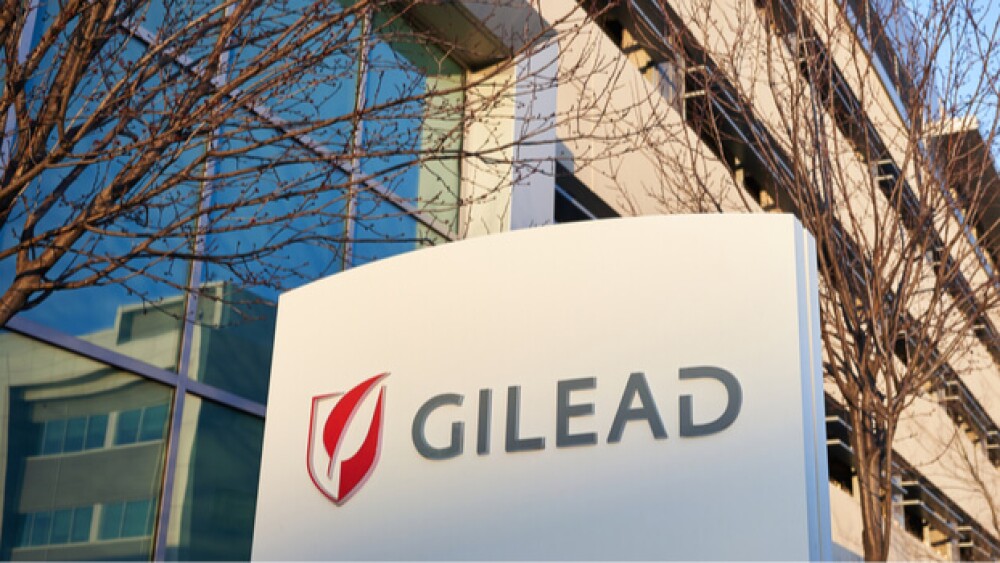Gilead’s Veklury made massive profits, but as more vaccine boosters arrive and more people become immune to the virus, the future of the antiviral is in question.
Courtesy of Tada Images/Getty Images
Gilead Sciences has been a major player in the fight against the COVID-19 pandemic. The company concentrated its efforts on developing Veklury, the first COVID-19 antiviral medication, and now, it’s clear that investment has paid off.
According to Gilead’s Q1 2022 financial report, the antiviral made massive profits. It’s great news for the short term, but as more vaccine boosters arrive and more people become immune to the virus, the future of the antiviral is in question.
As the pandemic first raged, Gilead immediately began working on antiviral treatments. The company was uniquely prepared for the situation. After earlier waves of viruses like SARS, MERS and Ebola, Gilead bolstered its antiviral research capabilities.
“The Ebola outbreak in 2014 intensified that search [for antivirals] and helped provide clinical safety data for our investigational antiviral. That’s the reason we could jumpstart our work once SARS-CoV-2 arrived,” Kavita Juneja, Gilead’s senior director, clinical development, virology said. “We knew it [COVID-19] was going to spread globally and asked ourselves if we were going to be prepared.”
Remdesivir was created and tested quickly. In May 2020, only a few months after the pandemic began, remdesivir received Emergency Use Authorization from the U.S. Food and Drug Administration. The drug proved helpful over the next two years, and in April 2022, remdesivir became the first COVID-19 treatment approved by the FDA to treat young children.
April 2022 also brought a recommendation from the World Health Organization, reversing its previous position that the treatment had little to no effect on mortality. The WHO now recommends remdesivir as a treatment for patients with mild to moderate COVID-19.
These continuous milestones bolstered remdesivir’s reputation and sales. In Gilead’s Q1 financial report, it shared that remdesivir—sold under the brand name Veklury—pulled in around $1.5 billion in sales in Q1 alone, beating sales estimates by $400 million.
Despite the antiviral’s success, remdesivir may not have time in the spotlight for long. The sales are impressive now, but Veklury’s profits pale in comparison to vaccine sales. Moderna, Pfizer and Johnson & Johnson combined reported approximately $31 billion in vaccine revenue in 2021.
The drug also may suffer revenue losses due to stiff competition. Pfizer developed Pavloxid, which, in December 2021, became the first FDA-approved oral antiviral for COVID-19. Pavloxid holds an advantage over Veklury because the Pavloxid tablets can be taken home, whereas Veklury must be administered intravenously in a clinical setting.
Now, two other oral antivirals are performing well. Merck will be presenting data on its drug molnupiravir at the European Congress of Clinical Microbiology & Infectious Diseases (ECCMID) 2022 conference. Molnupiravir has shown positive effects for most patients who used it against COVID-19 symptoms.
Another competitor is sabizabulin, an oral COVID antiviral made by Veru. After studies showed that sabizabulin is pharmacologically effective regardless of the strain of COVID-19, shares of Veru skyrocketed by nearly 200%.
Gilead is aware of these risks. In its Q1 financial report, the company dedicated a significant part of its forward-looking statement to Veklury specifically, adding a wide disclaimer. “These risks and uncertainties include those relating to: the impact of the COVID-19 pandemic on Gilead’s business, financial condition and results of operations; the development, manufacturing and distribution of Veklury as a treatment for COVID-19, including the uncertainty of the amount and timing of future Veklury sales and Gilead’s ability to effectively manage the global supply and distribution of Veklury; Gilead’s ability to achieve its anticipated full year 2022 financial results, including as a result of potential adverse revenue impacts from COVID-19 and potential revenues from Veklury…”
Because of antiviral competition and the prevalence of vaccines, remdesivir can’t prop up Gilead’s earnings on its own. Remdesivir performed well and boosted Gilead’s Q1 earnings, but Q1 2022 net income plummeted 99% to just $12M compared to Q1 2021. Gilead’s hepatitis C franchise revenue is down 22% year-over-year. Overall, Gilead had a net loss because of its acquisition of Immunomedics.
Veklury has been a cash cow for Gilead for two years, but if Gilead wants to reach its financial goals, it may need to invest in other parts of its business.





